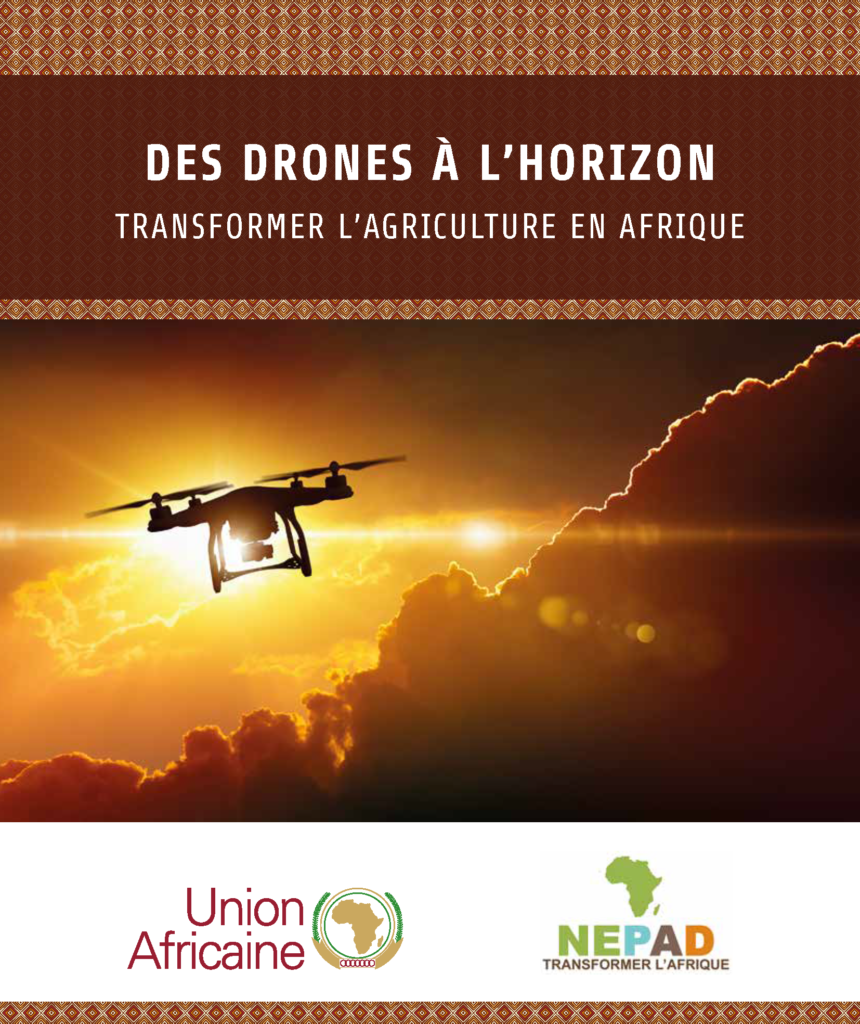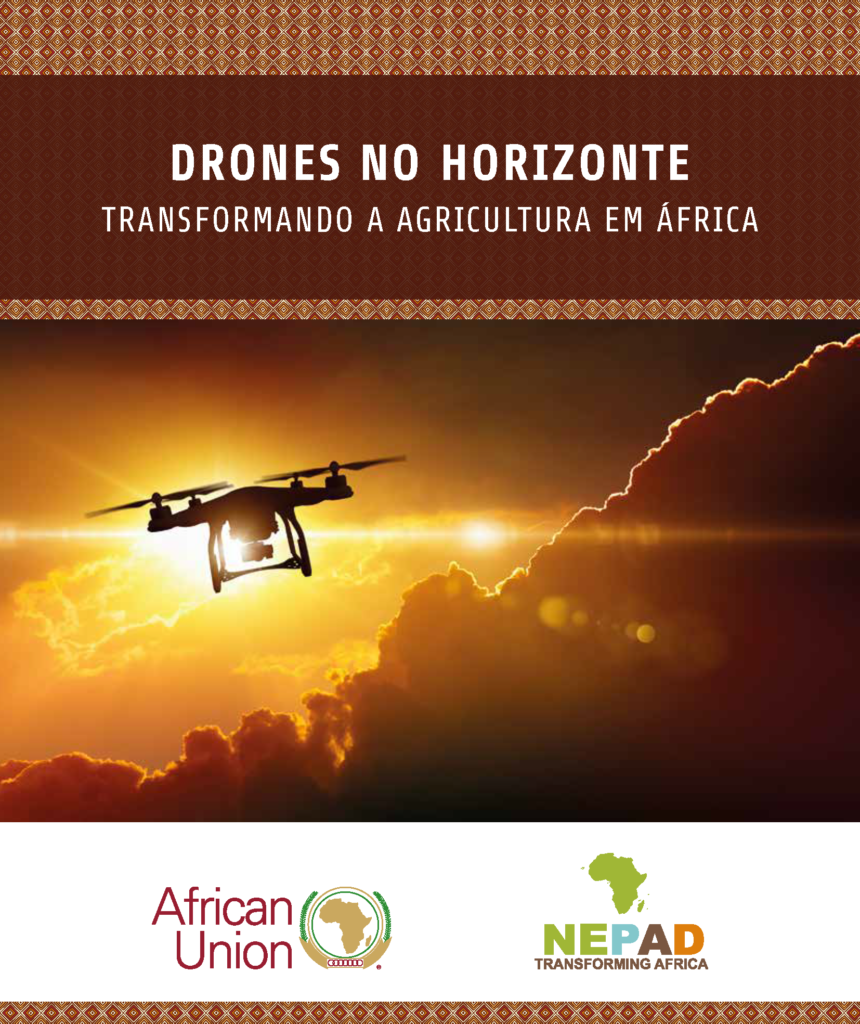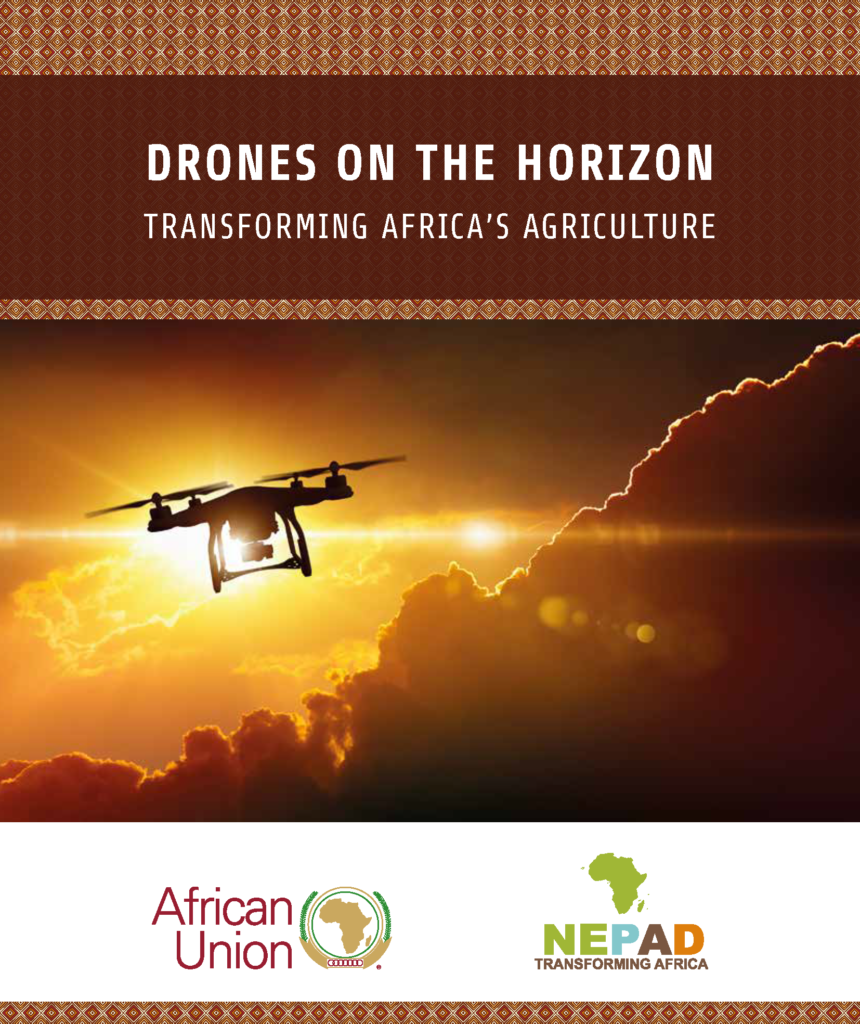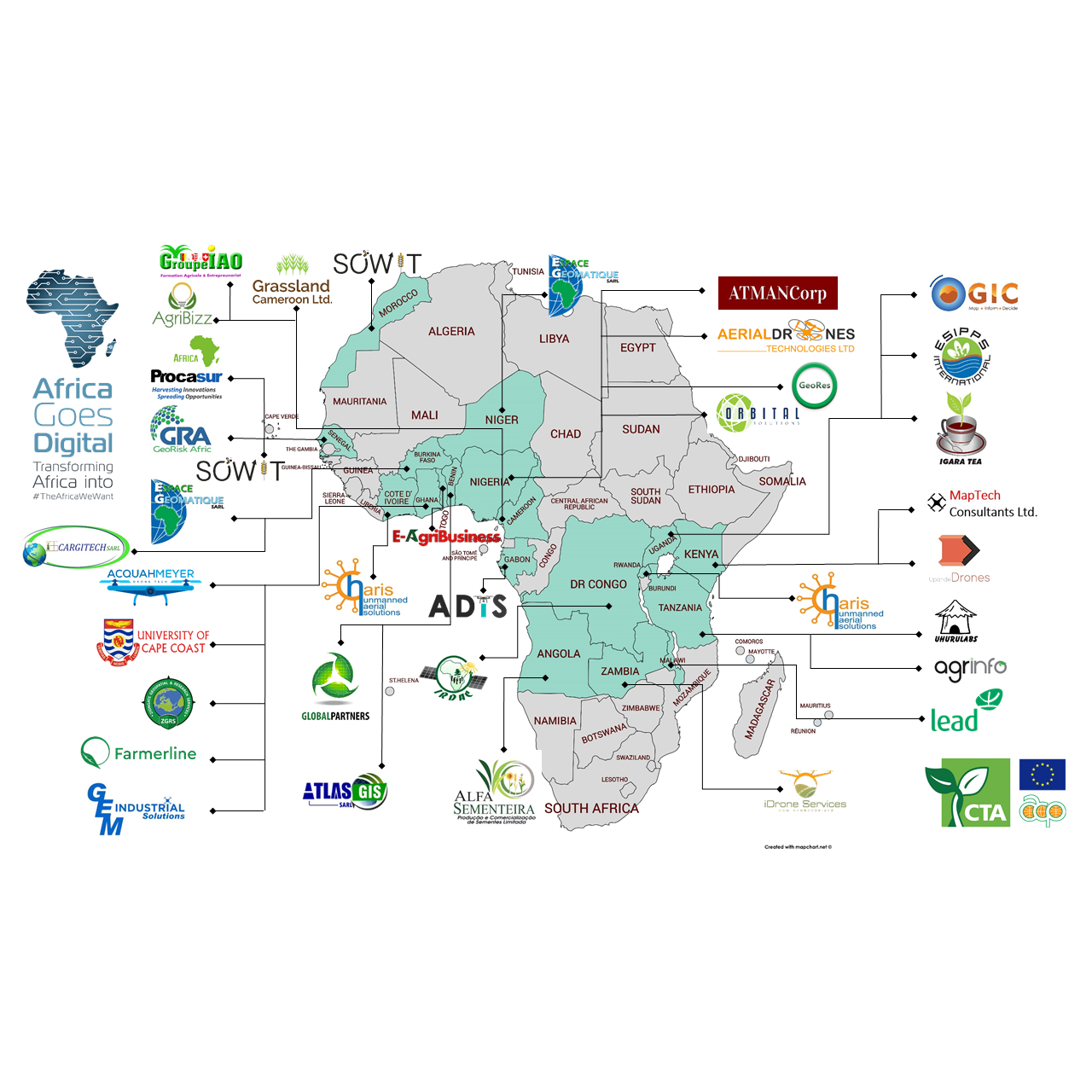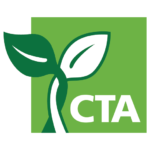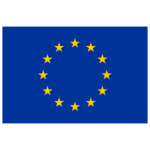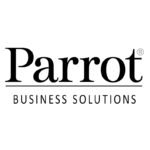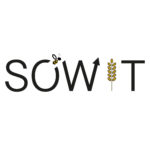Members of Africa Goes Digital and CTA supported NEPAD and the African Union in producing the Portuguese version of the key reference document “Drones on The Horizon: Transforming Africa’s Agriculture”.
This report published in English and French in June 2018, provides a contextualised review of drones as a vital precision agriculture-enabling technology and its range of relevant uses for providing detailed and on-demand data in order to enhance decision-making by farmers hence facilitate the much needed support.
In conclusion, this report – endorsed by the The African Union (AU) High Level Panel on Emerging Technologies (APET) – considers drone technology for precision agriculture as a potential game-changer for the continent and recommends that the adoption, deployment and upscaling of Unmanned Aerial services (UASs) in the context of precision agriculture is considered a priority. Key areas to be considered in upscaling the technology and realising its potential include capacity building, enabling/supporting infrastructure, regulatory strengthening, research and development and stakeholder engagement. In this regard, the APET recommends the following to the AU organs, member states and regional economic communities:
At national level:
- Assess the opportunity cost of UAV technology including external factors and balance it against expected outcomes such as food security, improved health and the potential for drones to make agriculture attractive to the youth.
- Ensure that stakeholders are engaged in all aspects related to the introduction of UAV technology so that potential resistance is understood and dealt with systematically.
- Conduct public awareness around UASs and their civil applications to clearly distinguish between civil and military uses and thereby improve public acceptance. Safety, security and privacy concerns need to be dealt with as part of this process.
- Address cost and technical barriers to adoption through either subsidies, licensed small and medium-sized enterprises or cooperatives and build a supportive framework for drone governance and regulation to facilitate adoption (including licensing and registration).
- Encourage and support public-private partnerships for UAV technology uptake.
- Ensure that appropriate national UAV regulations are put in place. Appropriate regulation should strike a balance between competing public security concerns on the one hand and the need to encourage innovation, economic development and youth entrepreneurship, on the other. In this context, encourage National Civil Aviation Authorities to establish enabling regulatory frameworks for UAV technology to be deployed and up-scaled to serve precision agriculture.
- Allocate resources for R&D (cost and benefits) and capacity building to build critical mass in all aspects of drone technology – licensed pilots, scientists, regulators, etc.
- In the context of smallholder farmers, support crop intensification via stimulating the planting of the same crops simultaneously in contiguous areas to form larger and more rational holdings, which could reap the benefits of UAV technology for precision agriculture.
At continental level
- Develop a continental regulatory framework for the use of UAVs in Africa, and harmonise policies across countries and regions (regional economic communities).
- Enhance South-South, triangular and regional collaborations, partnerships, networks and knowledge-exchanges to facilitate upscaling and use of drone technology.
